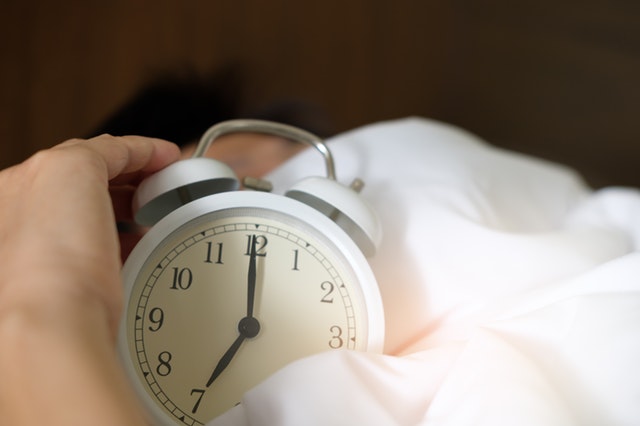Forget the scale—Keep this one area in check as you age

Keep this one area in check as you age—your waistline. Forget the scale! People put too much emphasis on the scale. Simplify life and keep your waistline in view. Why? A midsection measuring more than 35 inches puts a woman’s health at risk. And a man’s midsection measuring more than 40 inches puts his health at risk. These measurements increase the chance of heart disease and diabetes in males and females. However, the battle to keep your waistline in check as you age becomes more challenging if you do not develop healthy habits that manage your hormones and stress levels.
Menopause (women) and andropause (men) are new stages on the continuum of life.
Women can experience hot flashes, difficulty sleeping at nights, and weight gain due particularly to increase in belly fat as the body’s estrogen level decreases.
Men can experience loss of muscle mass, increased body fat particularly around the abdomen, fatigue, and hair loss as the testosterone level decreases.
The common denominator between both sexes is increased belly fat. So how can you prevent a bourgeoning waistline if it is inevitable?
Here are 6 healthy ways to keep your waistline in check as you age:
-
Get sufficient sleep

Sleep resets the body. Think of sleep like a reset button. When you do not get sufficient sleep, your body’s circadian clock is thrown off rhythm. In fact, every organ and cell has a clock built inside of it that tells the body when to carry out a certain function. While we are awake, we are working, exercising, playing, and eating, for example. While we are asleep, the body is repairing and restoring cells. That’s why it is critical to get adequate sleep so the body can be reprogrammed in order to run effectively. You should get at least 7 hours of sleep in order to be in optimal health, the CDC website reports.
-
Manage the hormones

When your body is going through biological changes, getting sufficient sleep is critical in order to bring some sort of balance to your hormones. Though there are many variables involved in managing hormonal levels, a body that is sleep-deprived cannot find balance. One of the first hormones to bring under control is cortisol (aka fat storage hormone). There is enough scientific evidence out there to blame this hormone on at least 70 percent of any fat around the belly. Lack of sleep increases the hormone cortisol. Although this hormone is needed by the body for regulating functions related to the nervous system, including energy, metabolism, body temperature, blood pressure, and memory, you will feel like a train that has run off its tracks if this hormone is disrupted.
Excess cortisol is like a smoke detector continuously beeping to remind you to change the batteries. In response, blood sugar levels remain high in the body. Attempting to reduce the sugar in the blood, the body releases a new player—the hormone insulin. Though the body needs insulin to reduce the amount of sugar in the blood, it will also tell the body to store energy for future use. This energy is then stored in the liver, muscles and brain as glycogen, and in other cells as fat, mainly around your waist.
So keep cortisol levels under control by getting sufficient sleep or going to bed early. Going to bed early may also help to prevent late-night snacking.
-
Avoid eating at night

If you find yourself eating at night, it might be better to simply go to bed early instead. In order to feel more awake, the body will desire food for energy. Timing presents an issue here for the body. Usually when the body needs sleep or is low on sleep, “your brain can’t make reasoned decisions and use its best judgment about food, and you’re more likely to be impulsive and give into junk-food desires,” explains Dr. Michael Breus. So, even if it is just one cookie and a cup of tea, it is best not to eat. It is not the one event that is the problem but the consistency of the action. It is what you are doing consistently that adds up the calories.
-
De-stress

Develop a bedtime ritual.
Read something on what interests you and that won’t upset you. A 2009 study at the University of Sussex found that reading can reduce stress by up to 68 percent and it only takes six minutes to slow down the heart rate and ease tension in the muscles. Reading works better and faster than other relaxation methods such as listening to music or drinking a hot cup of tea. This is because the mind is engaged in creating a fictional world that is free from the problems that can plague your daily life.
Practice Mindfulness-Based Stress Reduction. Mindfulness-Based Stress Reduction (MBSR) is a group program that was developed by Jon Kabat-Zinn in the 1970s to treat patients struggling with life’s difficulties and physical and/or mental illness. It was initially created to aid hospital patients but has found wide support and uses from all walks of life. A daily commitment to mindfulness can help transform not just your sleep but your life, in general.
Add to the above practices, reading and MBSR, aromatherapy. Aromatherapy is a complementary and alternative medicine practice that taps into the healing power of scents from essential oils extracted from plants in order to balance your mind, body, and spirit.
Using a diffuser, oils such as lavender, lemon, clary sage and bergamot can help relieve stress and promote sleep.
Controlling your stress levels is important in keeping the body in harmony. Prolonged stress, in particular, triggers the hormone cortisol. Weight gain or excess fat around the abdominal area is a type of imbalance. Incorporating exercise is important in bringing balance to the body.
-
Exercise regularly

As people get older, they tend to move less and lose muscle. This increases the risk of obesity and other diseases and dysfunction, as well as the tendency to gain visceral fat.
Visceral fat is body fat that is stored within the abdominal area and around a number of important internal organs such as the liver, pancreas and intestines.
Visceral fat is sometimes referred to as “active fat” because research has shown that this type of fat plays a distinctive and potentially dangerous role in how our hormones function.
Post-menopausal women tend to store more visceral fat due to the hormonal changes that occur (primarily the decrease in estrogen).
Low testosterone in men also causes an increase in weight gain around the midsection. This fat can lead to type 2 diabetes.
Drinking large amounts of alcohol is associated with higher amounts of visceral fat in both men and women.
Resistance training and cardio together can create a strong support for these hormonal changes.
Resistance training
Weight training and body weight exercises stimulate muscle growth. This information is extremely significant to you as you age. Because muscle loss makes the body vulnerable to fat increase, a good resistance training program would be beneficial in maintaining muscles.
Cardio
Vigorous walking, swimming, bicycling, dancing are excellent cardio options. Cardio helps to control blood sugar levels and thus the hormone insulin. Keeping blood sugar levels balanced in the body helps to control weight gain in the midsection.
Couple an active lifestyle with a healthy diet and you can have a winning combination.
-
Eat a plant-based diet

A healthy diet is important in controlling hormones, in particular insulin. In order to become healthier, some people have chosen to become vegetarians. However, you do not have to become a vegetarian to eat healthily. Plant-based diets, namely the Mediterranean, include meats but also healthy carbohydrates and fats.
But if you want to reduce insulin levels, eat less carbohydrates and more healthy fats such as those found in avocados, nuts, seeds, and pastured meats. These foods also are good sources of protein, which should be a part of every meal.
Conclusion:
Your hormones can influence where your body stores fat. As you age, your hormone levels change and can cause your body to store fat around your midsection, causing your waistline to expand as you age. Therefore, you should try to manage your hormone levels. Managing your stress can help control your hormones. Implementing healthy habits throughout your life helps you to handle the stressors of life. Getting sufficient sleep and rest, eating a healthy diet, exercising regularly, practicing meditation are healthy habits that can help keep your waistline in check as you age. Remember to breathe deeply and enjoy life!
Sources:
https://www.cdc.gov/features/sleep/index.html
https://www.theverge.com/2018/6/12/17453398/sleep-circadian-code-satchin-panda-clock-health-science
https://www.diabetes.co.uk/body/visceral-fat.html
https://www.huffingtonpost.com/marlynn-wei-md-jd/6-aromatherapy-essential-_b_9805630.html
https://positivepsychologyprogram.com/mindfulness-based-stress-reduction-mbsr/
https://www.telegraph.co.uk/news/health/news/5070874/Reading-can-help-reduce-stress.html
https://www.rd.com/health/healthy-eating/eating-when-not-hungry/
https://www.thesleepdoctor.com/2018/04/10/sleep-deprivation/
Experience Life. “Harmony: A guide to understanding the chemical messengers that determine our well-being” by Laine Bergeson Becco, September 2018.
Leave a Comment
